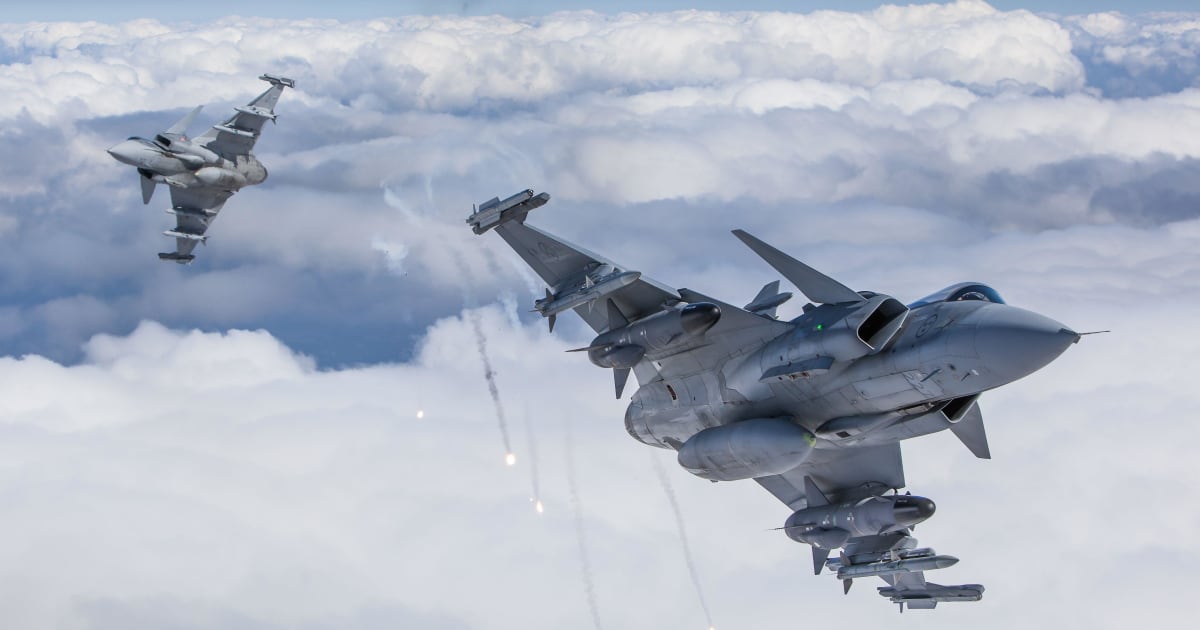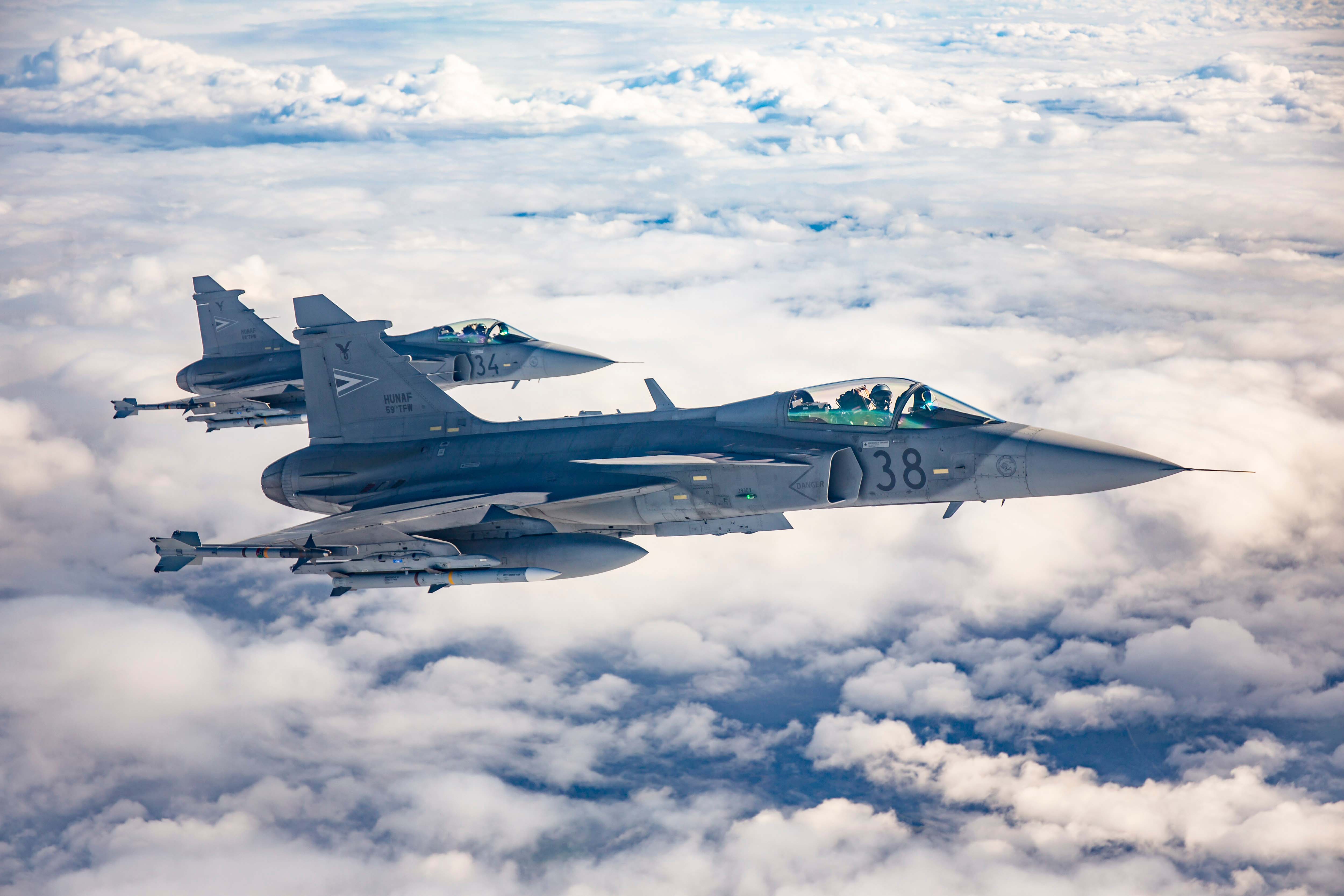With Hungary softening its anti-Sweden stance, the path is clear for the Nordic nation – after nearly 18 months — to finally receive the unanimous vote from all 31 member nations to enter NATO. The indications of Sweden’s entry came after Hungary agreed to acquire four Saab Gripen fighter jets.
Two years after Sweden submitted a formal application to join NATO, it may be closer than ever to entering the European security alliance, with a previously reticent Hungary anticipated to vote on ratifying Sweden’s membership of NATO on February 26.
The populist government in Hungary has been delaying the vote on Sweden’s membership for almost 18 months, which has strained relations with Stockholm. In addition, there has been increased pressure from its allies to proceed with ratification. Now, the breakthrough for Sweden is near, and it is believed to have been catalyzed by a key defense agreement.
Ahead of the ratification process, Hungary announced on February 23 that it had signed a deal to acquire four Saab JAS Gripen fighter jets from Sweden. Earlier, averse to the idea of Sweden’s entry into NATO, Hungary’s Prime Minister Viktor Mihály Orbán claimed to have “rebuilt trust” after meeting his Swedish counterpart Ulf Kristersson.
Saab announced that it had inked a deal with the Swedish Defence Materiel Administration (FMV) for four more Gripen Cs for the Hungarian Air Force (HuAF), in addition to the 14 Gripen C/D aircraft which were leased from Sweden in 2001 and put into service in 2006.
Currently, the 14 aircraft in service are primarily responsible for protecting the Hungarian airspace, but since 2014, the Puma squadron of Gripens has also been in charge of protecting the Slovenian airspace.
“This order follows an amendment to the contract between [the] FMV and the Hungarian government signed in December 2001 regarding 14 Gripen C/D fighters for the Hungarian Air Force. The contract amendment for the four additional aircraft was signed by the Hungarian Ministry of Defense and FMV on February 23. With this new contract amendment, Hungary will operate a total of 18 Gripen C/D aircraft to protect and defend the Hungarian and NATO airspace,” Saab said in a statement published on its official website.

As of now, Saab and FMV have a contract in place for Saab to support Hungary’s Gripen aircraft, and Saab is prepared to maintain and enhance the Hungarian fighters well beyond 2035.
An agreement was also struck by Saab and the Hungarian Ministry of Defense about the advancement of fighter aircraft capabilities and high-tech industrial zones. Support for the creation of a VR technology center in Hungary is also part of the cooperation.
These additional aircraft, albeit not specified in the release, might be upgraded to the HuAF’s current Gripen fleet, which is being retrofitted with the latest MS20 Block 2 standards. This standard includes upgrading the Saab PS-05/A Mk4 radar, improved Link 16 datalink capabilities, and installing the most recent NATO Mode 5 standard identification, friend-or-foe (IFF) system.
Hungary can now select from a larger range of weaponry thanks to MS20 Block 2, which includes the air-to-air Diehl IRIS-T and MBDA Meteor missiles, the Raytheon GBU-49 Paveway precision-guided bomb, RTX AIM-130C-8 Advanced Medium-Range Air-to-Air Missiles (AMRAAMs), and upgraded DM113 FAP (frangible armor piercing) ammunition for the aircraft’s 27 mm cannon.

Without mentioning whether the upgraded aircraft will be delivered to Hungary, Kristersson said, “I strongly welcome this deepened cooperation on advanced fighting capabilities.” He further emphasized that the Gripen aircraft was the “pride of Sweden.”
On his part, Orbán noted that the additional Gripen jets “will significantly increase our military capabilities and further strengthen our role abroad” and expand Hungary’s capacity to take part in cooperative NATO operations.
The deal would allow Hungary to presumably ratify Sweden’s NATO proposal on February 26, when a parliamentary vote on the issue is planned. Hungary is the last of the alliance’s 31 members that has not endorsed Swedne’s NATO membership. Admission to the alliance requires the support of all 31 members unanimously.
Long Journey to Get Hungary Onboard
Orbán had stated that his government supported Sweden’s entry into NATO during Hungary’s more than 18-month wait for a vote, but members of his ruling Fidesz party were not persuaded, having been offended by “blatant lies” from certain Swedish politicians that he claimed, called into question Hungary’s democratic credentials.
Hungary’s reluctance is believed to have been, at least in part, due to a widening rift with the United States.
Despite being an ally of the United States, Orbán had previously named US President Joe Biden as one of his opponents. Top Hungarian officials have charged Washington with interfering in domestic affairs. Conspiracies concerning US foreign policy and other anti-American themes are frequently broadcast by Hungarian government-controlled media.
Western officials have also accused the leader of Hungary of cultivating ties with Beijing and Moscow while publicly criticizing his Western allies.
The close relationship between Turkish President Erdoğan and Viktor Orbán was considered the reason behind Hungary’s delay in ratifying Sweden’s membership in NATO. Turkey was the only other country in the 31-member strong NATO alliance blocking Sweden’s entry into NATO for its own security and diplomatic disagreements with the country. However, Turkish lawmakers endorsed Sweden’s NATO membership last month, which may have influenced Hungary’s decision.
Today we opened a new phase of cooperation between Hungary and Sweden with @SwedishPM Ulf Kristersson. Thank you for your visit, Prime Minister! 🇭🇺🇸🇪 pic.twitter.com/tygr5OcxUP
— Orbán Viktor (@PM_ViktorOrban) February 23, 2024
Orban had been under considerable pressure from his peers in NATO to end the roadblock with criticism mounting over the past few weeks. The United States, for one, said it was disappointed in Budapest’s unreasonable hesitation in ratifying the membership.
Alienated, under pressure, and presented with a deal for Gripens that it could not refuse, Hungary is finally geared to vote to allow Sweden to become a member of NATO.
- Contact the author at sakshi.tiwari9555 (at) gmail.com
- Follow EurAsian Times on Google News




